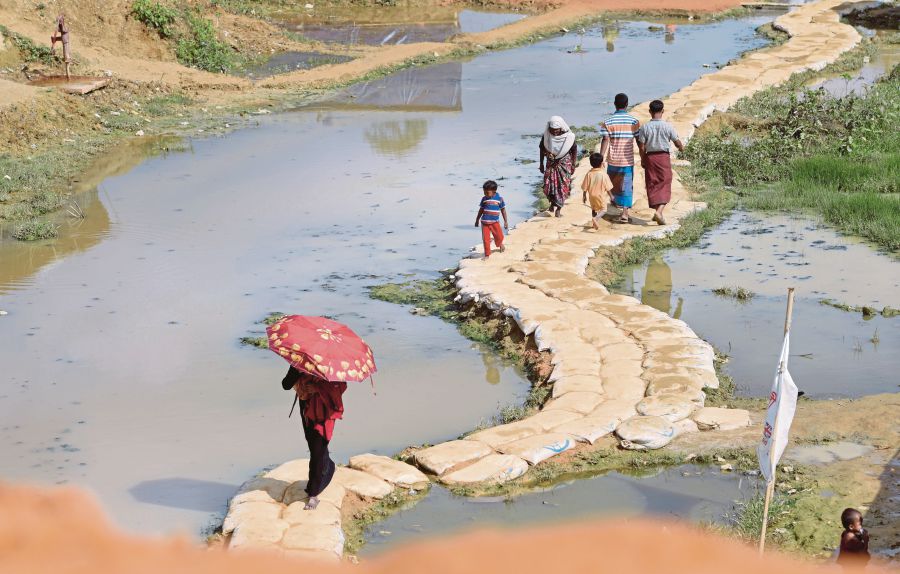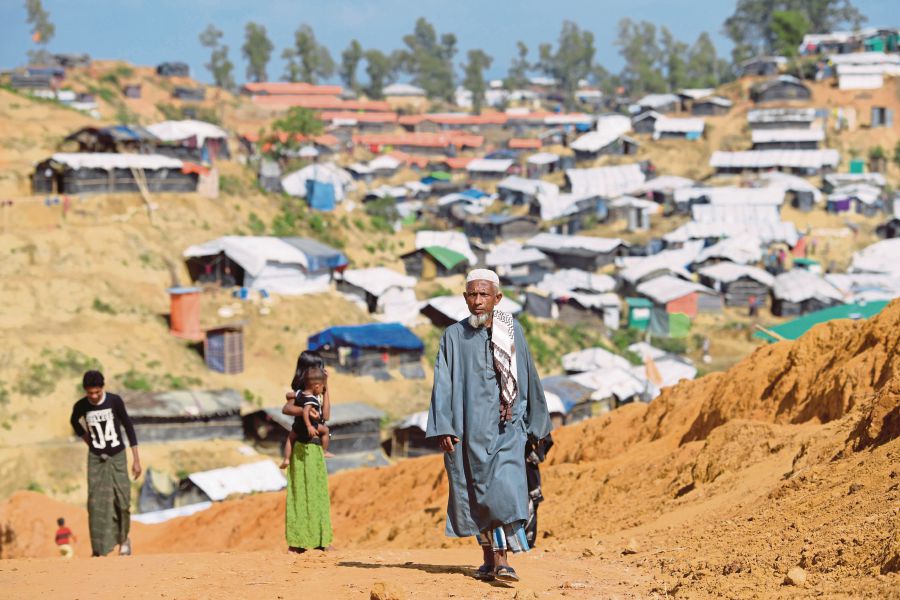IT’S official — the violence perpetrated by the Myanmar army against the Muslim Rohingya in Rakhine State does constitute “ethnic cleansing”, and may also amount to “crimes against humanity”, and even “genocide”.
This was stated in a report by the influential Foreign Affairs Committee of the United Kingdom’s House of Commons, published last Friday.

Not that the committee is the final arbiter of what constitutes ethnic cleansing, crimes against humanity or genocide.
A host of prominent agencies, officials and activists has alluded to that since the crisis started earlier this year, while politicians all over still feigned to give Myanmar State Counsellor Aung San Suu Kyi the benefit of a doubt.
Hats off to the 11-member committee, which is chaired by Tom Tugendhat, the Conservative member of parliament (MP) for Tonbridge and Malling, and includes human rights activist Ann Clwyd, the well-known Labour MP for Cynon Valley.
The others on the committee are two Muslims — Nusrat Ghani, Conservative MP for Wealden, and Nadhim Zahawi, Conservative MP for Stratford-on-Avon.
It is unusual that an All-Party Parliamentary Committee forthrightly rebukes the failure and inadequacies of their government’s foreign policy, in this instance, responding to the violence against the hapless Rohingya and the gravity of the charge of “ethnic cleansing” and, possibly, genocide against the Myanmar army.
They did not mince their words in their scathing condemnation of the UK government and the international community: “The UK government’s equivocation over classifying this violence has been frustratingly confusing.
“It has also failed to undertake its own legal analysis.
“This is not befitting its leading international role, and it should immediately investigate and conduct its own assessment of the situation.
“International action has also been inadequate, given the gravity of this charge, and as the ‘penholder’ on Burma in the United Nations Security Council, the UK bears some responsibility for failing to turn international outrage into tangible action and improvements on the ground.
“The government achieved a surprisingly strong UN Presidential Statement, but this did not impose any measures, or deadlines on Burma,” the committee said.
The MPs urged London and like-minded partners to rise above this by focusing on regional forums and allies to achieve results.
Malaysia has been leading the voice of action and concern among the Organisation of Islamic Cooperation countries.
Despite assurances from Suu Kyi, the plight of the Rohingya persists.
More than half a million, largely children, women and elderly men, are languishing in appalling conditions in border refugee camps in Bangladesh.
This has undermined Asean’s efficacy and “street cred”, especially among youth.
The current effort to help the Rohingya, at best, seems piecemeal and disjointed.

Increased frontline aid in terms of mitigating hunger, starvation, unsanitary conditions, lack of shelter, basic healthcare, protecting the vulnerable young especially girls, and the lack of schooling, must go hand-in-hand with more robust political and diplomatic action.
This must include the return of the Rohingya to their villages, complete with a re-construction of their basic facilities and in-built security measures, if need be, provided by a temporary UN peacekeeping force.
The acid test is for Suu Kyi’s administration to recognise the Rohingya as a Burmese ethnic group, and to afford them citizenship and protection under the Myanmar constitution like
it did to other ethnic groups
and the majority Buddhist populace.
This is where like-minded partners in the OIC, EU and governments, such as the UK, must align and come up with a plan of action and ensure that it is achieved in the short- to medium-term.
Failing that, there has to be a more robust regime of censure in place to get the message across to Naypyidaw that, enough is enough, and that in the 21st Century, ethnic cleansing and genocide would not be tolerated. Otherwise, the mistakes and lessons of the wars in Bosnia, Kosovo and Darfur would not be learnt.
Although sanctions are an imperfect tool, it is wrong for the UK, according to the committee, to continue engagement with Myanmar with no demonstration of censure.
If substantial improvement is not achieved soon, they urge London to pursue sanctions on senior military figures and businesses, including the commander-in-chief of Myanmar’s security forces, General Min Aung Hlaing, who in their eyes, is responsible for the violence.
The telling conclusion is that the UK government has continued to support Suu Kyi and her government because of a lack of alternatives.
Aung San Suu Kyi, stressed the MPs, “is constrained by a lack of control over the military and strong domestic public opinion, but we were disappointed that the state counsellor has not shown the leadership that was hoped for and needed. She remains a better option than
the alternatives, and perhaps, the only hope for the future,
but she is now a compromised one”.
The challenge to secure a future for the displaced Rohingya will not be easy.
Any repatriation must be safe and voluntary with the caveat that it must have the confidence of UN agencies.
The world must realise that the permanent refugee camps have the potential to create their own problems for the future — nurturing a sense of fear and hopelessness.
This, in turn, could expose the vulnerable to radicalisation and trafficking.
Unfortunately, there is already some evidence of these, according to non-governmental organisations and journalists in the region.
One of the key failures, in recent years, has been the over-emphasis on support for Myanmar’s “democratic transition”, but at the expense of the prevention of atrocities.
As the committee so aptly put it: “In Burma, the UK government (and by implication others, too) should take a more hard-headed approach based on the new understanding of the political trajectory in the country and the limits of Aung San Suu Kyi’s leadership, or ability, or willingness, to speak out.”
The writer is an independent
London-based economist and writer





